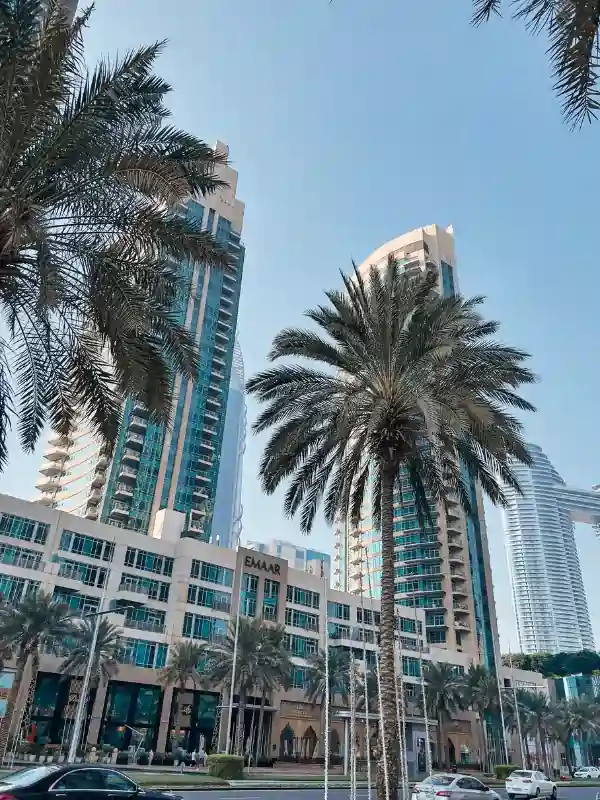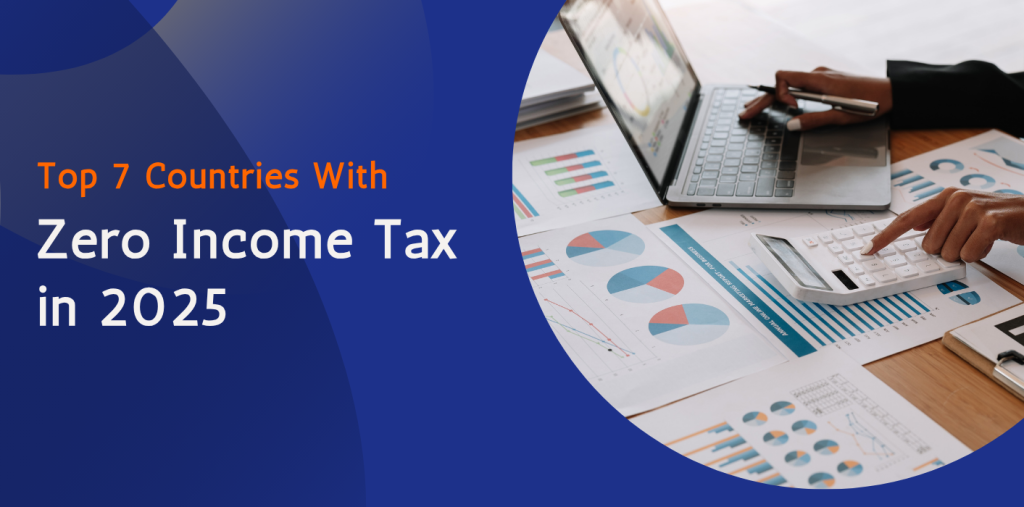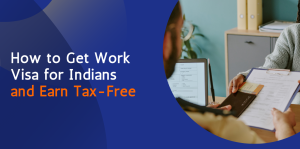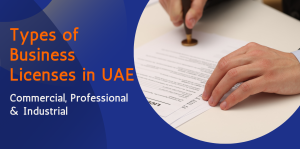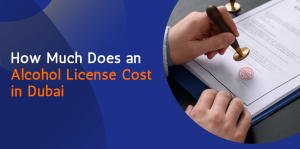For UK business owners and professionals, high personal tax rates and increasing operational costs can limit growth and profitability. Many are therefore exploring relocation options that offer better tax efficiency and business advantages.
Several countries now provide zero personal income tax to residents while maintaining strong infrastructure, political stability, and favourable business environments. These jurisdictions are not opaque tax havens but transparent economies with clear legal frameworks and easy residency options.
This blog covers the top seven countries offering zero income tax in 2025, explaining why Dubai remains the most attractive destination for UK businesses aiming to optimise their tax position and expand internationally.
What does zero income tax mean
Zero income tax does not indicate that governments operate without revenue. Instead, they rely on alternative income sources such as:
- Value-added taxes on purchases
- Tourism and hospitality industries
- Natural resource wealth (particularly oil and gas)
- Corporate taxes on business profits
- Import duties and customs fees
- Real estate transaction fees
For individuals, this means that salaries, bonuses, investment income, and capital gains remain entirely untaxed.
The top 7 countries with zero income tax in 2025
1. United Arab Emirates (Dubai & Abu Dhabi)
Dubai isn’t just leading the countries with zero income tax space; it’s fundamentally redefined what a tax-efficient jurisdiction can offer. This isn’t some remote island where you sacrifice lifestyle for tax savings. It’s a thriving global city with over 4 million residents in Dubai alone and 11.3 million across the UAE.
Here’s what sets it apart: 88% of the UAE’s population is expatriates. That’s 4.36 million Indians, plus substantial communities from Pakistan, the UK, the Philippines, Western Europe, and North America. You’re not moving to a foreign country where you’ll always feel like an outsider. You’re joining an international business hub where being from somewhere else is the norm.
The tax situation in the UAE
Zero personal income tax. Period. No taxes on your salary, bonuses, dividends, capital gains, inheritance, or wealth.
The corporate side changed recently. Since June 2023, businesses pay 9% corporate tax on profits exceeding AED 375,000. Small businesses below that threshold pay nothing. Free Zone companies that meet specific requirements can still operate tax-free. There’s also a 5% VAT on most goods and services.
For large multinational corporations with global revenues over AED 2.99 billion, a 15% minimum tax rate kicked in January 2025. This aligns with global OECD standards, but honestly, if you’re running a company that size, you have tax advisors handling this anyway.
Business ecosystem
Dubai has over 140 specialised Free Zones including:
- Dubai Internet City for tech companies.
- Dubai International Financial Centre for financial services.
- Dubai Healthcare City for medical businesses.
- Dubai Media City for creative industries.
These aren’t marketing gimmicks. They’re fully operational business districts with streamlined regulations, dedicated infrastructure, and industry-specific support services.
The location matters too. Dubai sits at the crossroads of Europe, Asia, and Africa. You’re 4 hours from most European capitals, 4-6 hours from major Asian cities, and 4-7 hours from key African markets. For businesses operating across multiple continents, this connectivity is genuinely valuable.
How to get in the UAE
The Golden Visa scheme grants 10-year residency if you place AED 2 million in real estate, set up an eligible business, or show proficiency in a specific sector. That’s permanent residency, renewable on an ongoing basis.
Below that tier, there are routine residency avenues, such as sponsorship for work (arranged by your employer), real estate acquisition (with varying levels depending on location), freelancer visas for independent professionals, and entrepreneur visas for business leaders.
To become a tax resident, one must spend 183 days a year in the UAE, keep local accommodation (rented or owned), and be in possession of a valid residence visa. Having done that, one can apply for a Tax Residency Certificate from the Federal Tax Authority at AED 1,000. Processing 3-5 working days.
The verdict
For entrepreneurs, executives, and families who want zero income tax without sacrificing quality of life or business opportunity, Dubai is unmatched among all countries with zero income tax. The infrastructure works. The business environment is sophisticated. The international community is established. And the tax benefits are genuine and stable.
2. Qatar (Doha)
Qatar offers zero personal income tax within a more conservative and industry-focused environment. It has one of the world’s highest per capita incomes, driven largely by substantial natural gas reserves.
The tax overview
Personal income and investment income are not taxed.
The business reality
Qatar is best suited for those in the energy, engineering, construction, or professional services industry. Large multinational corporations have their regional headquarters located here, and the compensation packages are very competitive. Housing allowances, education allowances, and medical coverage are offered by many employers, so your tax-free salary stretches even further.
The work culture is professional and serious. This is not a place that is famous for startups or creative hubs. It’s designed for established businesses generating serious business.
How can you enter the Qatar tax environment
You’ll typically need employer sponsorship. Unlike Dubai, where multiple independent pathways exist, Qatar residency is primarily employment-based. Long-term residency outside of employment is possible, but it is more restrictive.
Lifestyle notes:
Doha is modern but more traditional compared to Dubai. It offers world-class facilities in education, healthcare, and recreation while maintaining cultural conservatism. Alcohol sales are limited to licensed premises.
Who does this suit
Ideal for senior professionals with significant incomes who value a structured and secure living environment.
3. Bahrain (Manama)
Bahrain is the Gulf region’s best-kept secret among countries with zero income tax. It offers the same tax-free benefits as its wealthier neighbours but at a fraction of the cost and with the most relaxed social environment in the Gulf.
Why Bahrain works
- Zero personal income tax.
- Living costs 30-50 per cent lower than in Dubai or Doha.
- Progressive financial regulations, especially supporting fintech and Islamic banking.
Manama has evolved as a serious financial services center, not least for Islamic banking, fintech, and financial technology startups. The regulatory landscape fosters innovation without applying the levels of overregulation some jurisdictions apply.
The Saudi connection
Here’s something that most people tend to miss: Bahrain is linked to Saudi Arabia by the King Fahd Causeway. That translates into physical access to a market of 36 million and one of the largest economies in the world. For companies looking to target the Saudi market, Bahrain presents a less hectic operational hub with direct access across the bridge.
Social environment
Bahrain is noticeably more liberal than other Gulf states. Women drive freely (remember, Saudi only allowed this in 2018). Alcohol is legally available. Dress codes are relaxed. Western expatriates generally find the cultural adjustment easier here.
Business setup
- Company formation is straightforward.
- Costs are lower than Dubai.
- Regulations are less complex.
- For entrepreneurs and consultants who don’t need the prestige of a Dubai address, Bahrain offers excellent value.
Best for
Entrepreneurs, consultants, and financial services professionals who want Gulf access without Dubai costs. Particularly, suited for those serving the Saudi market or operating remotely while benefiting from zero income tax.
4. Monaco (Monte Carlo)
Monaco remains the only European jurisdiction among countries with zero income tax. Known as a tax haven, it offers unmatched prestige and access to European markets. However, it’s exclusively for ultra-high-net-worth individuals.
The tax benefits
- No income, capital gains, or wealth tax.
- No inheritance tax for direct heirs.
- Corporate tax applies only to companies earning over 25 per cent of turnover outside Monaco.
As a resident, you also gain access to French healthcare (excellent) while living under Monaco’s legal system (very stable). The principality’s privacy protections and banking infrastructure appeal to ultra-high-net-worth families managing complex international assets.
Monaco does not have property taxes. If you rent out a property there, you pay 1% of the yearly rent plus other fees. Monaco also does not tax dividends from local companies and does not have a corporate income tax.
The entry fee
To become a Monaco resident, you need to prove you can support yourself without working. In practice, this means demonstrating substantial wealth, think liquid assets in the eight-figure range.
Monaco has no formal investment-for-residency program. You apply directly to the government, which reviews your financial situation, background, and connections. It’s a discretionary process that favours the seriously wealthy.
Business considerations
Monaco works as a residence, not a business operations hub. Companies that generate more than 25% of their revenue outside Monaco are subject to corporate taxation. Most Monaco residents run their businesses elsewhere and use Monaco as a tax-efficient base for personal wealth management.
The lifestyle
If you’re financially qualified, Monaco provides a lifestyle that’s second to none. Ideal Mediterranean weather. Unquestionable safety. First-rate healthcare. Top-class dining and nightlife. Being close to French Riviera beaches and Italian culture.
The yacht club, casino, and nightlife are for the ultra-rich. Everyone is rich or working for the rich. That elitism is exactly what lots of residents are looking for.
Who these are for
People with $50 million+ of liquid wealth who have finished their wealth-building phase and are now concerned with preserving wealth and lifestyle. Not for business owners who are currently building businesses or professionals in the accumulation stage.
5. Cayman Islands (George Town)
Among countries with zero income tax, the Cayman Islands built its economy specifically around financial services, hedge funds, private equity, investment management, and banking. If you’re in the field of finance, this jurisdiction has more than just tax savings to offer.
Tax structure
- No personal or corporate income tax.
- Stable, British common law legal framework.
- Permanent residency requires a minimum investment of approximately USD 1.2 million.
For investment funds and vehicles, Cayman offers a tried-and-tested regulatory environment, seasoned service providers, and an institutional infrastructure second to none anywhere in the world.
Getting In
The Certificate of Permanent Residency involves investment of a minimum of $1.2 million in real property or local businesses, along with proof of an annual income of CI$120,000 (~$145,000). After residency for five years, you can apply for citizenship.
Lower-level residency is available for smaller islands such as Cayman Brac, with lower investment requirements.
The living reality
Cayman is beautiful, pristine beaches, excellent diving, and a relaxed Caribbean lifestyle. But it’s also isolated. You’re on an island. Everything imported (which is nearly everything) costs a premium. Groceries, household goods, electronics, all expensive.
Monthly living costs range from $6,000-$10,000 for a comfortable lifestyle. Housing is expensive and limited, especially in Seven Mile Beach areas where most expatriates prefer living.
Business environment
If you’re launching a hedge fund, Cayman is probably your jurisdiction. The service provider ecosystem, administrators, lawyers, auditors, and banks is sophisticated and experienced. Regulations are clear. The government understands the industry.
Outside finance, opportunities are limited. Tourism employs some people, but it’s not a diversified economy. This is a specialist jurisdiction.
Best for
Hedge fund managers, investment professionals, and financial services entrepreneurs with established businesses. The $1.2 million entry cost and high living expenses make sense when you’re managing significant assets and the jurisdiction’s infrastructure directly supports your business.
6. Bermuda (Hamilton)
Bermuda carved out a niche as the global center for reinsurance and insurance, particularly catastrophe reinsurance. If you work in this sector, Bermuda offers unmatched industry expertise and infrastructure.
Why insurance companies love Bermuda
Beyond zero income tax, Bermuda’s regulatory environment is sophisticated, supportive, and credible with international regulators. Major global insurers and reinsurers maintain headquarters here. The talent pool is experienced. Service providers understand the industry deeply.
For insurance professionals, being in Bermuda puts you at the center of the global reinsurance market.
The cost
Bermuda’s living costs run about 3x the US average. Professionals typically budget $12,000-$15,000 monthly. Housing is expensive and limited the island is small, and building space is restricted.
Nearly everything is imported, driving up costs for groceries, clothing, household goods, and vehicles.
Location advantage
Bermuda sits about 650 miles off North Carolina, roughly a 2-hour flight from New York, 3 hours from Toronto. This proximity to the US East Coast makes business travel manageable, unlike more remote islands.
The time zone alignment with US Eastern Time also facilitates daily business operations.
Work permits
Bermuda maintains restrictive work permit requirements. You’ll typically need specialized expertise and employer sponsorship. The government protects jobs for Bermudian nationals, so employers must demonstrate they can’t fill positions locally.
The lifestyle
Beautiful island, pink sand beaches, British culture mixed with Caribbean relaxed pace. Safe, clean, well-maintained. Excellent for families with children if you can secure school placement.
Best for
Senior insurance and reinsurance professionals with specialized expertise and compensation over $300,000 annually. The industry expertise and peer network justify the premium costs for people deeply embedded in this sector.
7. Saint Kitts and Nevis (Basseterre)
Saint Kitts and Nevis operates the world’s longest-running Citizenship by Investment program among countries with zero income tax, launched in 1984. For many people, the appeal isn’t living there full-time, it’s obtaining tax-free citizenship as part of a broader international strategy.
The investment route:
You have two main options:
- Donate $250,000 to the Sustainable Island State Contribution
- Invest $400,000+ in approved real estate projects
Processing takes 4-6 months. You don’t need to live there before or after obtaining citizenship, though you should visit at least once.
The tax benefits
Zero personal income tax, wealth tax, gift tax, inheritance tax, or capital gains tax. The country follows a territorial tax system, so income earned outside Saint Kitts and Nevis isn’t taxed even if you’re a citizen.
The passport
A Saint Kitts and Nevis passport provides visa-free access to about 150 countries, including the UK (up to 6 months), Schengen Zone countries (90 days within 180 days), and many other destinations. For citizens of countries with limited travel freedom, this offers substantial mobility.
Living there
Saint Kitts and Nevis is beautiful, lush Caribbean islands with friendly locals and relaxed pace. But the economy is small, based primarily on tourism and some offshore financial services.
Employment opportunities outside these sectors are limited. Infrastructure is basic compared to Dubai or Singapore. Healthcare is adequate for routine needs but serious medical issues require travel to larger Caribbean islands or the US.
Internet connectivity has improved but isn’t at First World standards. For remote workers dependent on reliable, fast internet, this can frustrate.
Best for
Entrepreneurs and investors seeking tax-efficient second citizenship and Caribbean residency options without requirements to live there full-time. Also suitable for retirees with passive income who value a quiet Caribbean lifestyle over cosmopolitan amenities.
The reason Dubai keeps winning
While several countries offer zero personal income tax, Dubai stands out for its holistic model. Unlike other jurisdictions that excel only in one dimension, such as Monaco’s prestige or Cayman’s financial specialisation Dubai combines:
The difference is livability combined with opportunity.
- Monaco offers excellent livability but requires wealth most people don’t have and offers limited business opportunities.
- Cayman offers business opportunities in finance but limited livability and very high costs.
- Caribbean nations among countries with zero income tax offer affordable entry but basic infrastructure and few opportunities.
- Kuwait and Qatar offer opportunities but restrictive residency and conservative environments.
Dubai somehow threads the needle on all of them.
- You gain access to world-class infrastructure, healthcare, education, transportation, and entertainment.
- Accessible residency options are available from a $544,000 investment to simple employment sponsorships.
- Genuine business opportunities exist across tech, finance, real estate, logistics, tourism, and more.
- Long-term stability is assured with 138+ tax treaties protecting your wealth internationally.
- It offers a cosmopolitan environment where 88% of residents are expatriates like you.
That combination simply doesn’t exist elsewhere. The UAE’s population, needless to say, is quite the story: 11.35 million have apparently voted with their feet. Dubai, in particular, has ballooned to 3.84 million. Not tourists, of course, they’re residents who’ve quite literally swapped their previous lives and businesses for a new one.
When you actually look at where international business types choose to settle assuming zero tax and all, the obvious winner is Dubai. It’s not some clever marketing ploy; it’s quite simply a case of revealed preference.
Conclusion
Countries with zero income tax offer legitimate, legal strategies for wealth preservation. The mathematics are straightforward, keeping an extra $60,000-$100,000 annually compounds dramatically over a career.
Among the countries with zero income tax, Dubai stands out for combining comprehensive tax benefits with a genuine quality of life and business opportunities. It’s not perfect, nowhere is. The heat is brutal, the costs are high, and you’ll be far from home.
But for international business professionals serious about maximising wealth accumulation while maintaining modern lifestyle standards, Dubai offers the best overall package available today among countries with zero income tax.
The question isn’t whether countries with zero income tax make financial sense, they clearly do for high earners. The question is whether the lifestyle and opportunity tradeoffs work for your specific situation.
For most international business professionals, that answer increasingly points to Dubai.


